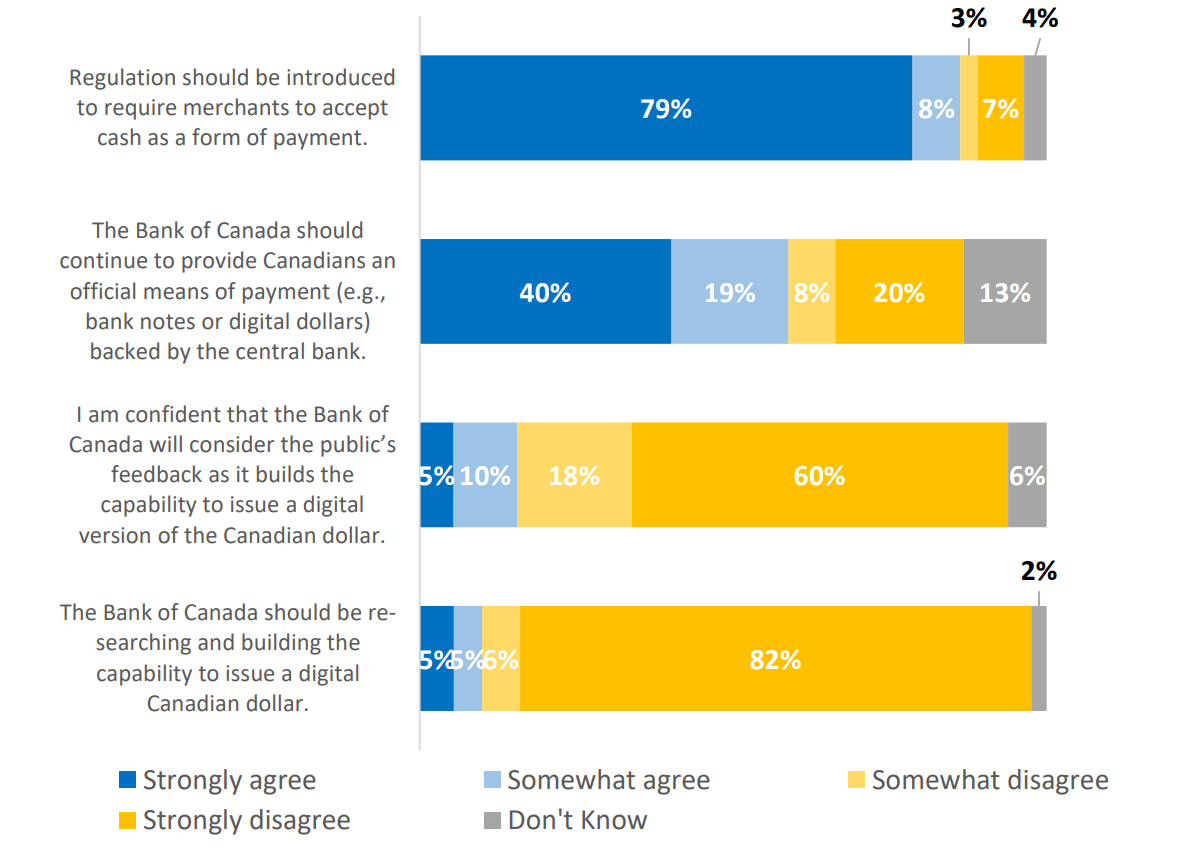A recent public consultation on Canada’s central bank digital currency (CBDC) initiative revealed an overall negative sentiment from Canadians, confirming the Bank of Canada’s concerns around its country-wide adoption.
Through the ‘digital Canadian dollar public consultation,’ the Canadian central bank intended to identify a place for CBDCs in a world currently dominated by digital fiat payments such as credit cards. However, in a survey that amassed 89,423 responses, Canadians demanded regulations that would require merchants to accept cash as a form of payment.
Awareness of a digital Canadian dollar. Source: bankofcanada.ca
Bank of Canada’s report shows that nearly 95% of the respondents either heard or were familiar with the concept of a digital Canadian dollar. While awareness stands as one of the key factors for widespread adoption, the metric doesn’t hold true for Canada.

Canadians demand regulation for cash acceptance if CBDCs were to be introduced. Source: bankofcanada.ca
93% of the respondents primarily make paper cash payments daily but also use credit and debit cards and other modes of online payments. In addition, just 15% of the respondents held Bitcoin (BTC) and other cryptocurrencies.
Related: Canadian regulator seeks feedback on crypto asset exposure disclosure requirements
Most respondents advised the Bank of Canada to stop researching and building the capability to issue a digital Canadian dollar. However, the public believes that their feedback will not be considered for the CBDC initiative.

Survey asked if Canadians would prefer using a digital Canadian dollar instead of current payment methods. Source: bankofcanada.ca
Nearly all respondents preferred using existing forms of payment over CBDC. Surprisingly, people who were aware of CBDCs were more reluctant to adopt the technology when compared to those who didn’t know about it.
Additionally, the small demographic of respondents who previously held crypto showed more interest in using CBDCs.
Magazine: Outrage that ChatGPT won’t say slurs, Q* ‘breaks encryption’, 99% fake web: AI Eye
Read the full article here










